NW Book Lovers
Making Sense of Memory: Questions for Gregory Martin
An Interview by Sally McPherson
At Broadway Books, we’re great fans of the books published by Portland-based publisher Hawthorne Books, under the guidance of owner and publisher Rhonda Hughes. They’re well chosen, well written, and well edited, and the books are beautifully produced, right down to the double-fold French flaps.
So I was thrilled to be asked by NW Book Lovers to interview Gregory Martin, author of Hawthorne’s recently published memoir, Stories for Boys. With a theme of fathers and sons–Martin and his father; Martin and his two sons, Oliver and Evan; and his father’s relationship with his own father—the author attempts to redefine his relationship with the father he thought he knew, after his father attempts suicide. As a result of the suicide attempt, Martin learns that his father was abused by his own father for years. He also learns that during the almost forty years of his father’s marriage, he had been having anonymous sexual encounters with men. Shortly after the suicide attempt, his mother and father divorce, and his father begins living his life as a gay man.
The book explores the question: are your memories valid if you suddenly find that they’ve been based on a life of deception and lies? How can Martin reconcile the man he knew as a loving, happy, “normal” husband and father with this person who had a whole other life he knew nothing about?
Cheryl Strayed calls Stories for Boys “moving, brave, and unforgettable.” And Pam Houston says, ‘This finely made, deeply felt memoir restores our faith in the power of language and story to make sense of a broken world.”
I found this book simultaneously quirky and heart-wrenching. I was left with admiration for the author’s courage in revealing his own struggles and his sometimes less-than-noble responses as he worked to reconcile his memories with this revelation and to re-establish his relationship with his father.
Martin teaches creative writing at the University of New Mexico in Albuquerque, where he lives with his wife and two sons. His first book, Mountain City, is a memoir of the life of a town of thirty-three people in remote northeastern Nevada. The book, published in 2000 by North Point Press, received a Washington State Book Award.
Martin will read from Stories for Boys at Powell’s City of Books this Thursday, October 11 at 7:30 pm. He’ll also read and teach a class at Wordstock. I interviewed him recently via e-mail.—Sally McPherson, Broadway Books
SM: What prompted you to write this book? Will you tell us about its evolution from an essay that was published in The Sun (Oct. 2008)?
GM: I started writing the essay “The Family Plot” only a few months after my father attempted suicide. I hoped at the time, and maybe my father did as well, that writing that essay would get the story out of my system. But it didn’t, because the essay only captures those first few months after his suicide attempt, when shock is only beginning to turn into other things, like acceptance and also anger. The essay doesn’t capture the evolution of my relationship with my father, much less his relationship with my sons. None of that had happened yet.
But I didn’t want to write about it. I really didn’t want to expose myself, and my mixed feelings, any more than I already had. I already felt unsettled by how much of myself I’d revealed. So, instead, I chose the hardest possible subject I could imagine and wrote a piece of literary journalism about pediatric hospice. I’m glad that I wrote that essay, and I think I did my subject justice, but it’s pretty clear to me now that doing so was an act of avoidance. I wanted to process something hard, something tragic, but just not the hard, tragic subject that was my father’s secret life and homosexuality and childhood abuse and betrayal of my mother. Couldn’t I just write about some other tragic subject? Apparently not. Because after I finished that article, whenever I sat down to write, out
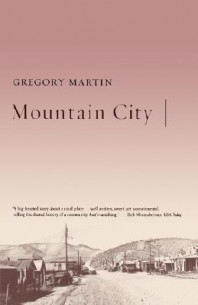 came this book. After a few months, when I finally acknowledged that I needed to write a book and committed to it, I wrote for 100 days straight and more than 300 pages came out like wrenching open a fire hydrant on a summer day.
came this book. After a few months, when I finally acknowledged that I needed to write a book and committed to it, I wrote for 100 days straight and more than 300 pages came out like wrenching open a fire hydrant on a summer day.
SM: How does your father feel about you writing this book?
GM: Not long after I finished the first complete draft of the book, I called my father and told him that I was about to email it to him and asked him if he would read it. He said sure. He’d print it out and read it right away. He had three reams of paper and a new ink cartridge. This was on a Friday night. The weekend passed. Then it was Monday night. Then it was Tuesday night. I couldn’t concentrate. I couldn’t eat much or sleep well. Rocky, our dog, was following me around the house, which is something he does when one of us is worried about something. Christine, my wife, said, “Why don’t you just call him?” My father answered on the second ring. “Hey, Son. How are you?”
I said, “I have an ulcer.”
I said, “Did you read it?”
He said, “Oh, yes. I’m reading it through again. I taught myself how to use that track changes feature in Microsoft Word. I’m making a few comments in those balloons that come up in the margins. Mostly small things. My father worked in the Newport News shipyard, not the one in Norfolk.”
“Is it okay?”
“What do you mean?”
“Are you okay with this? Is it okay for me to write this?”
“Oh. Of course. I hadn’t really thought about that.”
“Really?”
“Son, it’s yours,” he said. “It’s your story. I can only imagine what you went through putting all this 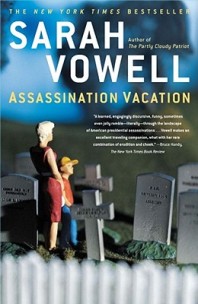 into words. I cried a few times. I thought about my life in ways I’d never thought before. Of course I approve. You made this.”
into words. I cried a few times. I thought about my life in ways I’d never thought before. Of course I approve. You made this.”
 into words. I cried a few times. I thought about my life in ways I’d never thought before. Of course I approve. You made this.”
into words. I cried a few times. I thought about my life in ways I’d never thought before. Of course I approve. You made this.”
SM: Memory is one of the big themes of your book— “the burden of memory and its costs and consequences.” You write that memories are “not fixed but ever-changing, because memories do not record the past but are only constructions invented in the present. They are a feat of imagination.” Will you talk about this?
GM: Since memory is highly unreliable, a real problem that every memoirist faces is: how do you become credible? One way, I think, is to explicitly refer to memory, its failures and gaps, and to make the book not just about the author’s particular memory—what I remember, what I don’t, what I wished I remembered, what I wished I could forget—but also about memory itself, about anyone’s memory. So a memoir can comment on the process of its own making, speculate about the past and its possibilities rather than render it without any qualification. One of the books I love the most, which I read and re-read while I was writing this, is William Maxwell’s So Long, See You Tomorrow. In it Maxwell often interrupts his story to say things like:
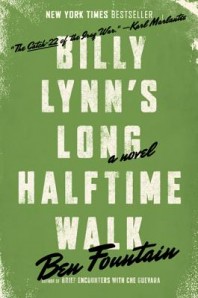 “What we, or at any rate I, refer to confidently as a memory—meaning a moment, a scene, a fact that has been subjected to a fixative and thereby rescued from oblivion—is really just a form of storytelling that goes on continually in the mind and often changes with the telling. Too many conflicting emotional interests are involved for life ever to be wholly acceptable, and possibly it is the work of the storyteller to rearrange things so that they conform to this end. In any case, in talking about the past we lie with every breath we draw.”
“What we, or at any rate I, refer to confidently as a memory—meaning a moment, a scene, a fact that has been subjected to a fixative and thereby rescued from oblivion—is really just a form of storytelling that goes on continually in the mind and often changes with the telling. Too many conflicting emotional interests are involved for life ever to be wholly acceptable, and possibly it is the work of the storyteller to rearrange things so that they conform to this end. In any case, in talking about the past we lie with every breath we draw.”
Memory isn’t linear and it doesn’t sit still. It can be as hard to transcribe a memory as it is to transcribe a dream. In So Long, See You Tomorrow, Maxwell acknowledges everywhere the difficulty of recapturing the past, and the longing for a more straightforward understanding that would make invention unnecessary. I wanted to emulate this way of thinking about memory and storytelling.
SM: You don’t always present yourself in the most flattering light in this book. How did you resist the impulse—or did you not have the impulse—to ‘clean up’ your reactions and actions when telling your story?
GM: The best stories hold their characters accountable, for their flaws, their actions, their mistakes. 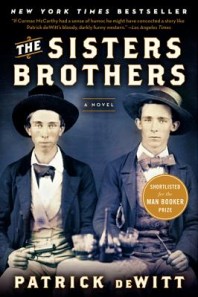 When this happens, the characters are given agency, rather than having their choices explained away or rationalized. This is just as important in memoir as it is in fiction, and especially so for the narrator, in an era when the memoir as a genre has credibility problems. Readers arrive at any memoir with justified skepticism, and the author’s task, on every page, is to attempt to earn their trust. I understood that there was no way I could characterize my father and his choices and mistakes and tragic circumstances, without at the same time showing the reader that I, too, did not always act with grace and poise. No one does. If I characterized myself as being noble all the time, no one would believe it, and it would also make for a lousy story. I was confused and unsettled and hurting, and so was my father, both of us in different ways. We blundered our way forward, doing the best we could, and failing one another at times along the way. That sounds a lot like life to me, and if the author doesn’t complexly render the mistakes, including his own, then the grace that does come, the connections and repair which emerge out of those mistakes, can’t be fully understood or appreciated by the reader.
When this happens, the characters are given agency, rather than having their choices explained away or rationalized. This is just as important in memoir as it is in fiction, and especially so for the narrator, in an era when the memoir as a genre has credibility problems. Readers arrive at any memoir with justified skepticism, and the author’s task, on every page, is to attempt to earn their trust. I understood that there was no way I could characterize my father and his choices and mistakes and tragic circumstances, without at the same time showing the reader that I, too, did not always act with grace and poise. No one does. If I characterized myself as being noble all the time, no one would believe it, and it would also make for a lousy story. I was confused and unsettled and hurting, and so was my father, both of us in different ways. We blundered our way forward, doing the best we could, and failing one another at times along the way. That sounds a lot like life to me, and if the author doesn’t complexly render the mistakes, including his own, then the grace that does come, the connections and repair which emerge out of those mistakes, can’t be fully understood or appreciated by the reader.
 When this happens, the characters are given agency, rather than having their choices explained away or rationalized. This is just as important in memoir as it is in fiction, and especially so for the narrator, in an era when the memoir as a genre has credibility problems. Readers arrive at any memoir with justified skepticism, and the author’s task, on every page, is to attempt to earn their trust. I understood that there was no way I could characterize my father and his choices and mistakes and tragic circumstances, without at the same time showing the reader that I, too, did not always act with grace and poise. No one does. If I characterized myself as being noble all the time, no one would believe it, and it would also make for a lousy story. I was confused and unsettled and hurting, and so was my father, both of us in different ways. We blundered our way forward, doing the best we could, and failing one another at times along the way. That sounds a lot like life to me, and if the author doesn’t complexly render the mistakes, including his own, then the grace that does come, the connections and repair which emerge out of those mistakes, can’t be fully understood or appreciated by the reader.
When this happens, the characters are given agency, rather than having their choices explained away or rationalized. This is just as important in memoir as it is in fiction, and especially so for the narrator, in an era when the memoir as a genre has credibility problems. Readers arrive at any memoir with justified skepticism, and the author’s task, on every page, is to attempt to earn their trust. I understood that there was no way I could characterize my father and his choices and mistakes and tragic circumstances, without at the same time showing the reader that I, too, did not always act with grace and poise. No one does. If I characterized myself as being noble all the time, no one would believe it, and it would also make for a lousy story. I was confused and unsettled and hurting, and so was my father, both of us in different ways. We blundered our way forward, doing the best we could, and failing one another at times along the way. That sounds a lot like life to me, and if the author doesn’t complexly render the mistakes, including his own, then the grace that does come, the connections and repair which emerge out of those mistakes, can’t be fully understood or appreciated by the reader.
SM: Your book offers some “micro” chapters, some photographs, some emails. How did you determine the structure this book would take?
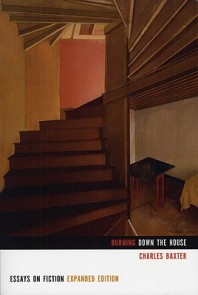 GM: Figuring out the architecture of the book was one of the things I enjoyed most. I like ‘raw materials’—photographs and emails which are unadorned and uninterpreted—to give the reader another vantage point from which to view the story and understand the characters. I included my father’s emails in a deliberately patterned way so that readers could hear his voice at length, come to understand how he was trying to communicate his struggles to me, and, in some ways, judge him for themselves. But along with the emails and photos, there are also, arranged in somewhat of a pattern throughout, small sections on Whitman, or the social science of secret lives, or the “psychological immune system,” and with these, I was trying to show the reader how I was trying to come to terms with what my father was telling me.
GM: Figuring out the architecture of the book was one of the things I enjoyed most. I like ‘raw materials’—photographs and emails which are unadorned and uninterpreted—to give the reader another vantage point from which to view the story and understand the characters. I included my father’s emails in a deliberately patterned way so that readers could hear his voice at length, come to understand how he was trying to communicate his struggles to me, and, in some ways, judge him for themselves. But along with the emails and photos, there are also, arranged in somewhat of a pattern throughout, small sections on Whitman, or the social science of secret lives, or the “psychological immune system,” and with these, I was trying to show the reader how I was trying to come to terms with what my father was telling me.
SM: You grew up in a family in which reading books was important and was modeled for you by your parents. Do you think that goes away when people move to E-books, which conceivably will mean fewer shelves stocked with favorite reads, and parents holding electronic glowing gadgets instead of printed books?
GM: Unfortunately or not, I’m one of those parents with the glowing gadgets. I’m reading two books right now simultaneously: Assassination Vacation by Sarah Vowell, in a paperback version, and 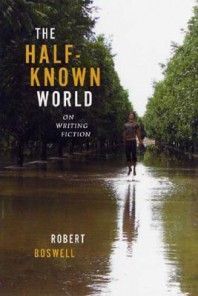 Billy Lynn’s Long Halftime Walk by Ben Fountain on my iPad. I’m not sure what effect this will have on my sons, Oliver and Evan. After a quiet Saturday morning in our house, like the one we’re living out now as I type, there are comic books and graphic novels and books of every stripe—from Calvin and Hobbes to Watership Down to The Hobbit—in unruly piles on the living room rug, the coffee table, the couch. That, to me, is a great morning.
Billy Lynn’s Long Halftime Walk by Ben Fountain on my iPad. I’m not sure what effect this will have on my sons, Oliver and Evan. After a quiet Saturday morning in our house, like the one we’re living out now as I type, there are comic books and graphic novels and books of every stripe—from Calvin and Hobbes to Watership Down to The Hobbit—in unruly piles on the living room rug, the coffee table, the couch. That, to me, is a great morning.
 Billy Lynn’s Long Halftime Walk by Ben Fountain on my iPad. I’m not sure what effect this will have on my sons, Oliver and Evan. After a quiet Saturday morning in our house, like the one we’re living out now as I type, there are comic books and graphic novels and books of every stripe—from Calvin and Hobbes to Watership Down to The Hobbit—in unruly piles on the living room rug, the coffee table, the couch. That, to me, is a great morning.
Billy Lynn’s Long Halftime Walk by Ben Fountain on my iPad. I’m not sure what effect this will have on my sons, Oliver and Evan. After a quiet Saturday morning in our house, like the one we’re living out now as I type, there are comic books and graphic novels and books of every stripe—from Calvin and Hobbes to Watership Down to The Hobbit—in unruly piles on the living room rug, the coffee table, the couch. That, to me, is a great morning.
Obviously, the E-books on my iPad don’t pile up on the floor and something is lost when you can’t just stand at a bookshelf and pull a book off and wonder, what is this one about? There’s something far more deliberate about choosing to read a book electronically. But I love reading on my iPad at night in bed with the brightness on low while Christine is sleeping next to me. I used to have to go in the next room, which isn’t as good.
I’m hopeful we all will adapt. And the reading will still get done, just as the writing will get done. One very clear downside to reading on an iPad is the ease of distraction that comes when you’re holding a device on which you can also check your email or your fantasy football team standings. That kind of distraction is all too present in my life, and while I don’t much like it, at the same time I also like being able to check things online when they occur to me. I think many of us have mixed feelings about 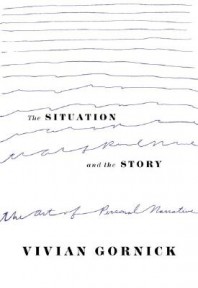 technological innovation.
technological innovation.
 technological innovation.
technological innovation.
SM: What kinds of books do you like to read? What books have you raved about recently?
GM: I’m pretty eclectic in my reading. I’ll try just about any book of any genre that is impressed upon me by someone I trust. I also have my go-to authors, which I’m reading and re-reading all the time: Alice Munro, Marilynne Robinson (even the difficult essays), Tobias Wolff, Antonya Nelson, George Saunders. When I find writers that speak to me, I try to read every single thing they’ve written.
Lately, I can’t stop talking about (Oregon Book Award winning) The Sisters Brothers by Patrick DeWitt. It’s hilarious and riveting in this truly strange way. Reading most influences my writing by making me want to do the hard work of trying to write myself. When I’m reading a great book, I often set it down after only a paragraph or a page and open up my laptop and get after it.
SM: What advice do you have for would-be writers?
GM: It’s ironic—the more I write and teach, the less I want to give advice. When I was a younger 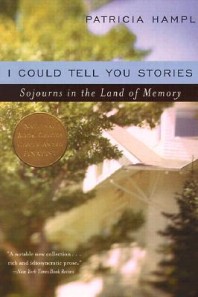 writer and teacher, I was always looking for the gem, the nugget, that piece of advice from one of the writers I just mentioned that I believed would point the way and save me from my ignorance—strategies to manage plot or character, ideas about process. Don’t get me wrong, I’m still doing this, still trying to learn the next thing. But I no longer believe that there is any one thing I need to know. That kind of craft intelligence is cumulative and takes a lifetime to gain. There are no clear steps, no method, no sequence—no plan or pattern to follow. Art just doesn’t work like that.
writer and teacher, I was always looking for the gem, the nugget, that piece of advice from one of the writers I just mentioned that I believed would point the way and save me from my ignorance—strategies to manage plot or character, ideas about process. Don’t get me wrong, I’m still doing this, still trying to learn the next thing. But I no longer believe that there is any one thing I need to know. That kind of craft intelligence is cumulative and takes a lifetime to gain. There are no clear steps, no method, no sequence—no plan or pattern to follow. Art just doesn’t work like that.
 writer and teacher, I was always looking for the gem, the nugget, that piece of advice from one of the writers I just mentioned that I believed would point the way and save me from my ignorance—strategies to manage plot or character, ideas about process. Don’t get me wrong, I’m still doing this, still trying to learn the next thing. But I no longer believe that there is any one thing I need to know. That kind of craft intelligence is cumulative and takes a lifetime to gain. There are no clear steps, no method, no sequence—no plan or pattern to follow. Art just doesn’t work like that.
writer and teacher, I was always looking for the gem, the nugget, that piece of advice from one of the writers I just mentioned that I believed would point the way and save me from my ignorance—strategies to manage plot or character, ideas about process. Don’t get me wrong, I’m still doing this, still trying to learn the next thing. But I no longer believe that there is any one thing I need to know. That kind of craft intelligence is cumulative and takes a lifetime to gain. There are no clear steps, no method, no sequence—no plan or pattern to follow. Art just doesn’t work like that.
Putting in the hours is a good idea, because in some way, those hours are a real measure of commitment. I ask my MFA students to put in 18 hours a week and even to keep a journal to track those hours, so that they don’t kid themselves about how much they’re working. But even that requirement—18 hours, recorded in a certain way—is sort of arbitrary and perhaps a little silly. It’s really just an exercise in self-awareness and provides a kind of helpful illusion that there’s this path to follow.
What I try to do also, as a teacher of MFA students, is to give them a range of books and essays on writing strategies by a variety of writers, and say ‘these are your teachers.’ There’s all kinds of stuff here that will speak to you at different times: learn from them. Let your own desire to know 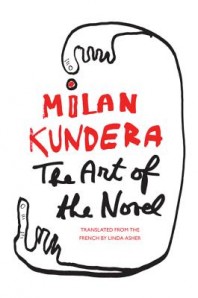 more be your guide. Don’t look for any gurus. Devour it all. I mean books on craft like Charles Baxter’s Burning Down the House, or Robert Boswell’s The Half-Known World. These are master writers who have written entire books full of their ideas about writing. They’re invaluable, and they’re as gripping to the writer who is hungry to know more as the best novel. Also, Vivian Gornick’sThe Situation and the Story, Patricia Hampl’s I Could Tell You Stories, Milan Kundera’s The Art of the Novel, and Stephen Koch’s The Modern Library’s Writer’s Workshop. On Writing, Stephen King’s book on craft is great, too. There are just so many—I’ve read them cover to cover multiple times and, in different ways, they’ve sunk in and affected my sensibility.
more be your guide. Don’t look for any gurus. Devour it all. I mean books on craft like Charles Baxter’s Burning Down the House, or Robert Boswell’s The Half-Known World. These are master writers who have written entire books full of their ideas about writing. They’re invaluable, and they’re as gripping to the writer who is hungry to know more as the best novel. Also, Vivian Gornick’sThe Situation and the Story, Patricia Hampl’s I Could Tell You Stories, Milan Kundera’s The Art of the Novel, and Stephen Koch’s The Modern Library’s Writer’s Workshop. On Writing, Stephen King’s book on craft is great, too. There are just so many—I’ve read them cover to cover multiple times and, in different ways, they’ve sunk in and affected my sensibility.
 more be your guide. Don’t look for any gurus. Devour it all. I mean books on craft like Charles Baxter’s Burning Down the House, or Robert Boswell’s The Half-Known World. These are master writers who have written entire books full of their ideas about writing. They’re invaluable, and they’re as gripping to the writer who is hungry to know more as the best novel. Also, Vivian Gornick’sThe Situation and the Story, Patricia Hampl’s I Could Tell You Stories, Milan Kundera’s The Art of the Novel, and Stephen Koch’s The Modern Library’s Writer’s Workshop. On Writing, Stephen King’s book on craft is great, too. There are just so many—I’ve read them cover to cover multiple times and, in different ways, they’ve sunk in and affected my sensibility.
more be your guide. Don’t look for any gurus. Devour it all. I mean books on craft like Charles Baxter’s Burning Down the House, or Robert Boswell’s The Half-Known World. These are master writers who have written entire books full of their ideas about writing. They’re invaluable, and they’re as gripping to the writer who is hungry to know more as the best novel. Also, Vivian Gornick’sThe Situation and the Story, Patricia Hampl’s I Could Tell You Stories, Milan Kundera’s The Art of the Novel, and Stephen Koch’s The Modern Library’s Writer’s Workshop. On Writing, Stephen King’s book on craft is great, too. There are just so many—I’ve read them cover to cover multiple times and, in different ways, they’ve sunk in and affected my sensibility.

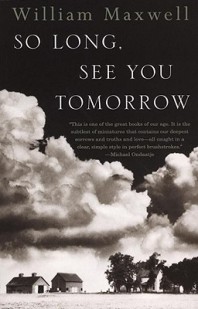

No comments:
Post a Comment